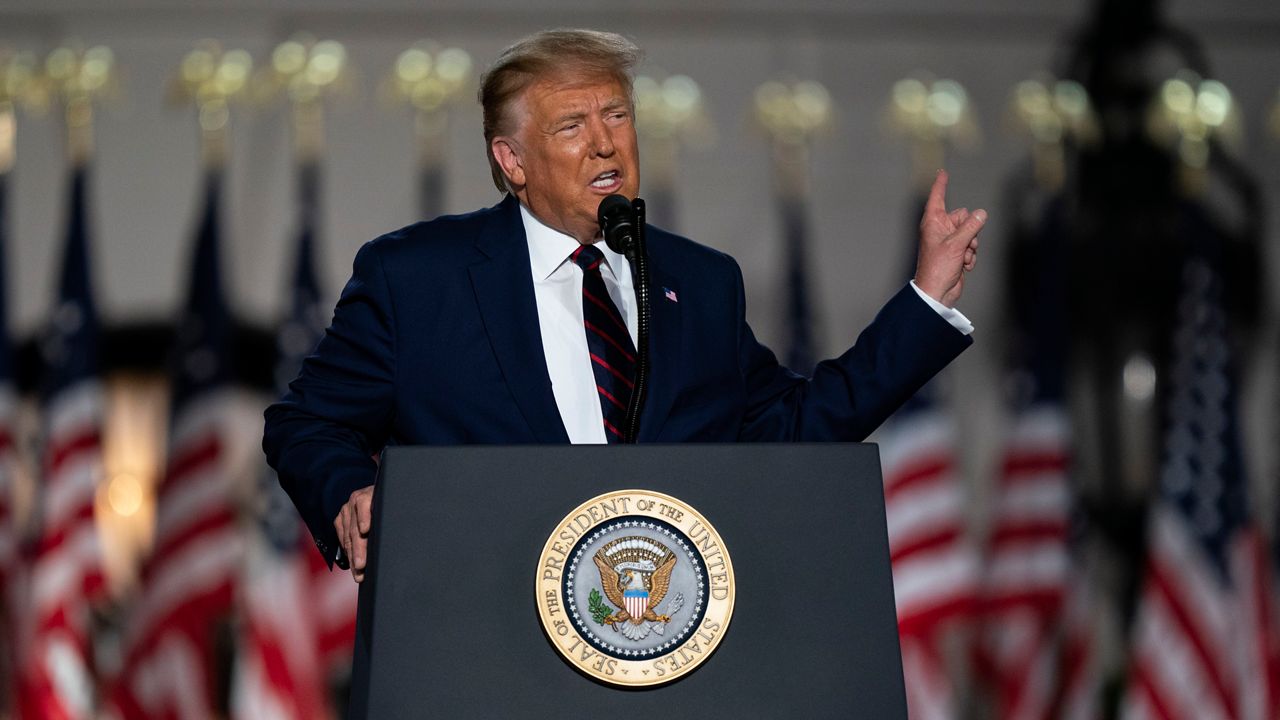Many issues are coursing through the presidential campaign in these final weeks: the death of Justice Ruth Bader Ginsburg and whether to fill her seat on the Supreme Court; the COVID-19 pandemic, and its related health worries; jobs; race and the power of the police; climate change; and, as always, identity -- who we want to represent us for the next four years.
Beyond the specific and overlapping concerns, though, something greater is pulsing.
Trust.
Trust in our government, trust in the people running for office, trust in science, trust tomorrow will be a better day in the nation. It shouldn’t be a surprise that trust is radiating in our national election. After all, it seems to poke into so many other aspects of our interconnected (if socially distanced) world.
Asked whether most people can be trusted, or not, adults surveyed in March say they can, but the margin was hardly overwhelming: 53% to 46% according to the Pew Research Center.
But when it comes to the institutions that traditionally undergird our civic life, those numbers are far below 50%.
Thirteen percent have “a great deal” or “quite a lot” of trust in Congress; for the presidency, it’s 39%; and 40% for the Supreme Court.
Institutions outside government are well below 50%: newspapers (24%), TV news (18%), big business (19%), organized labor (31%).
President Trump tapped into these sentiments in 2016. He famously asked of Black voters, “What do you have to lose?” but it seemed broadly applicable. He appealed to an acute unease in what the U.S. was becoming. Distrust was at the center from the beginning of Trump’s ascension to the White House, as he questioned President Obama’s birthplace. He railed against a “deep state.”
“Nobody knows the system better than me, which is why I alone can fix it,” he said in 2016.
The president, you could argue, shed nuance of the complicated issues that are unsettling so many Americans. He also is still found to frequently say things that are untrue — although in a world of disparate media sources, there are limits to repercussions.
After a margin of 78,000 votes in Wisconsin, Michigan and Pennsylvania helped him win the Electoral College, Trump governed with distrust in institutions central to his governing agenda, and today it’s again key to his reelection platform as he faces former Vice President Joe Biden.
Here are three major examples of how the president seeded distrust in just the past few days:
- He said Wednesday his director of the Centers for Disease Control and Prevention “made a mistake” when he testified under oath that any vaccine would be in “very limited supply” this year and wouldn’t be broadly available until spring or summer 2021.
- A day later, he dismissed testimony from his FBI director about the threat of Russian interference in the election aimed at undermining Biden.
- Also Thursday, he wrote on Twitter that there is a “RIGGED ELECTION in waiting!”
“Trump is building on some of the things that he's done all through his initial candidacy and presidency,” said Amy Fried, chair of the political science department at the University of Maine, who is co-writing a book on the cultivation of distrust in American politics. “All of the distrust towards the so-called deep state. And turning against certain parts of government, but then also the use of distrust specifically when it comes to election processes.”
The risk, though, is that Trump is no longer an insurgent candidate -- he’s the president. His supporters are prone to credit him for at least trying to fight against the forces he attacked on the 2016 stump. Others may note he’s in charge, making it hard to rail against the institution.
It also comes amid a pandemic that has killed nearly 200,000 Americans. In political terms, the pandemic is revealing trust in medical professionals and science that eclipse the president’s own ratings.
Biden is trying to glom onto those figures -- crafting his candidacy around science and caution. He frequently refers to wearing masks, listening to “docs” and created a political strategy around eschewing the typical trappings of the electoral season — like holding rallies, shaking hands, even knocking on doors.
“I trust vaccines. I trust scientists. But I don't trust Donald Trump -- and at this moment the American people can’t, either,” Biden said Wednesday.
“What the polling is showing very clearly is that more people trust the CDC. They trust Dr. (Anthony) Fauci. And they trust Vice
President Biden as well, more than they trust Trump, when it comes to
information about the pandemic, honesty about the pandemic and COVID and also the ability to tackle and to do something about it,” Fried said.
Polling shows voters trust Trump more with the economy. But as long as Democrats can keep enough attention on the pandemic, Trump’s unfavorability and other issues such as easing racial
Tensions — where Biden is at an advantage — the former vice president appears more likely than not to translate his polling lead into victory.
One major caveat, of course, is that we are embarking on what could be the first election in which a majority vote by mail. Who knows how that will work out?
Still, Fried noted that distrust as a strategy for an incumbent president may have its limits.
“Right now, the trust in Trump is so low that it's hard for him to make his distrustful argument stick beyond really his base,” she said.



